A variety of financial aid programs can help with the pursuit of graduate studies. Student loans are one option available through the federal government, banks, and private lending institutions. Many companies and institutions provide their employees with financial support for professional development. The following resources may help you finance your degree.
Applications for aid are available on October 1. Do not wait for acceptance into the MEDEX program to apply for aid. Many students apply for funds from limited sources. For priority consideration, complete the Free Application for Federal Student Aid (FAFSA) by the UW priority filing date of January 15. Information about the application process can be found through links on the UW Office of Financial Aid Web site or from the FAFSA Web site.
Visit here for information on loan repayment.
UW Office of Student Financial Aid
It is recommended to read the information on the sites listed above before contacting the financial aid office.
Contact Information
University of Washington
Office of Student Financial Aid
105 Schmitz Hall, Box 355880
1400 NE Campus Parkway
Seattle, WA 98195-5880
(206) 543-6101
osfa@u.washington.edu
The financial aid office coordinates and awards the following aid for graduate students enrolled in the MEDEX program:
-
Federal Direct Stafford Loans
-
Federal and State Work Study
Scholarships
MEDEX Northwest has established several in-house scholarship funds with an emphasis on primary care, a focus on the medically underserved, and leadership potential. One is focused on emergency medicine. An announcement to first-year didactic students in Fall quarter invites students to apply for these scholarships. Scholarships are awarded at the April MEDEX Alumni Reception & Awards Ceremony in SeaTac, WA. This annual event coincides with the Western Washington meeting of the Washington Academy of Physician Assistants (WAPA). Students must be currently enrolled to be eligible to apply.
Other scholarship information can be found on many websites, and most public libraries maintain lists of educational scholarships and loans in their reference areas. There are links to various scholarships and lists of available scholarships on the UW Office of Student Financial Aid website and through the UW Scholarship office. Professional associations also offer scholarships to currently enrolled PA students who meet certain criteria. WAPA, the American Academy of Physician Assistants Veterans Caucus and the Physician Assistant Foundation sponsor just a few of these awards annually. Look for the websites that are free and do not require registration fees unless that is something you choose to do.
To make the search for scholarship opportunities easier, MEDEX has compiled a list of opportunities. The list is expansive and includes many scholarships meant for physician assistant students and healthcare workers. Please visit each website to view the most up-to-date opportunities available.
Additional Funding Sources
U.S. Department of Education
Money Matters offers financial assistance information from U.S. Department of Education.
VA Educational Benefits
VA loans and Veterans’ benefits, including the Post 9/11 GI Bill, are available from the U.S. Department of Veterans Affairs.
Washington State Scholarship and Loan Repayment Program
http://www.wsac.wa.gov/health-professionals
(360) 705- 6665
